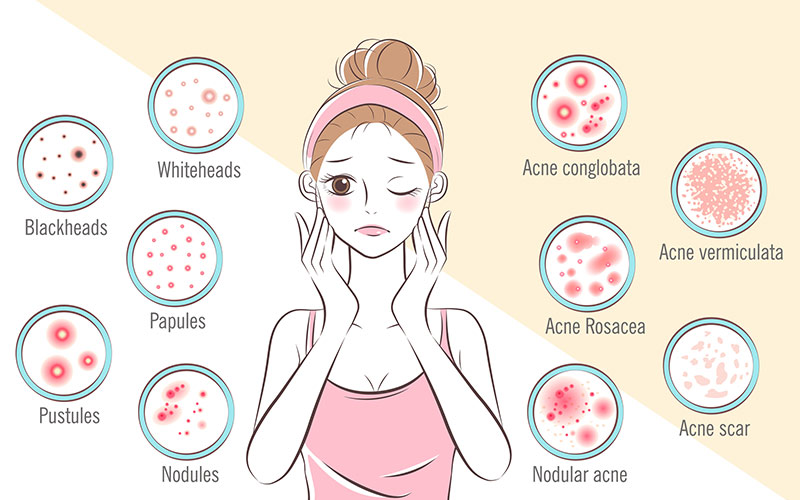Acne can feel like the end of the world when you are a teenager. Sometimes it feels uncontrollable and you might think everyone is looking at you for the wrong reasons.
Luckily, you aren’t alone. Acne affects around 85% of teenagers, between the ages of 13 and 20 years of age and is usually caused by an increase in hormones throughout puberty. Whether you are dealing with a one-time breakout or severe case of acne, there are some tips you can follow to improve the condition of your skin and manage your acne.
1. Wash your face daily
One of the most important rules for managing acne is washing your face daily. Most dermatologists recommend washing your face twice a day, once in the morning and once in the evening. You’ll want to use a cleanser that is geared towards your type of skin, whether it is oily, dry, or sensitive to certain ingredients.
If you are acne-prone, you will want to look for ingredients like salicylic acid, glycolic acid, or benzoyl peroxide. Glycolic acid is the gentlest of the three and is suitable for all skin types. If you are dealing with dry skin, you will want to look for ingredients like urea or lactic acid because they have moisturizing properties. Here’s some information about over-washing your face to keep in mind, too.
2. Drink plenty of water

Water is crucial for human life and it’s important for your complexion too. Most teenagers need between six to eight cups of water each day, but this number will be different if you are ill, more active than usual, or it’s hot outside. Dry, flaky skin is a noticeable sign that you aren’t drinking enough water, but you might experience these other signs of dehydration, too: headaches, dizziness, constipation, and fatigue.
3. Moisturize your skin
You might think that moisturizing will worsen acne, but the right moisturizer will improve the condition of your skin. Moisturizer works by hydrating the surface of the skin, so less oil is produced to clog your pores.
This helps stop new acne from forming and allows your skin to heal. For acne-prone skin, you will want to look for a product that is lightweight and oil-based to ensure it doesn’t irritate your skin or worsen existing acne.
4. Avoid touching your face
This next tip might sound strange until you think about how dirty your hands might be at any given moment. Unless your hands are thoroughly washed, you risk exposing your face to contaminants in your environment including bacteria that could worsen your acne-prone skin.
Additionally, you should avoid picking at blemishes as they could become infected or leave behind a scar that will take longer to go away than the average pimple.
5. Change your pillowcase
Dirty pillowcases are an unsuspected culprit when it comes to dealing with acne, but they do hold onto bacteria, dirt, and other grime responsible for pimples.
Most experts recommend washing bedding once per week to remove bacteria, but this might be challenging depending on your household’s laundry needs. Instead, focus on washing your pillowcase once a week, as it touches your face for a significant amount of time each night.
Depending on your skin type, you might need to use unscented laundry detergent or something geared towards sensitive skin.
